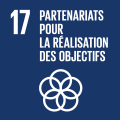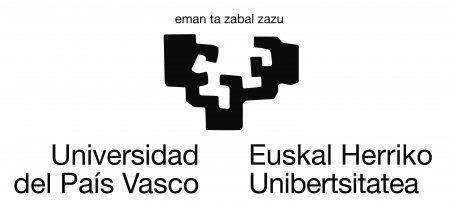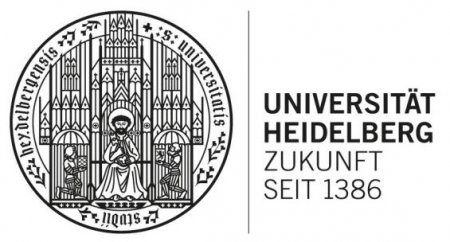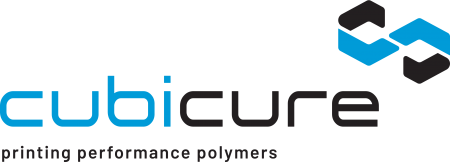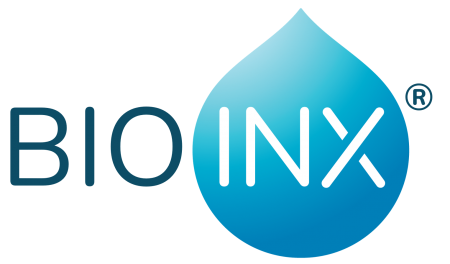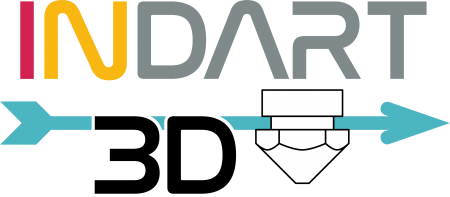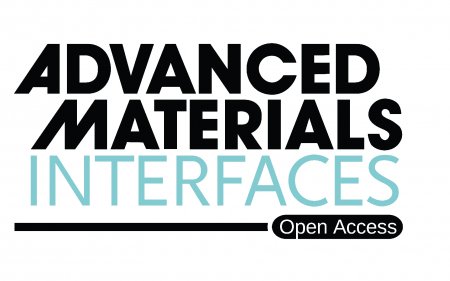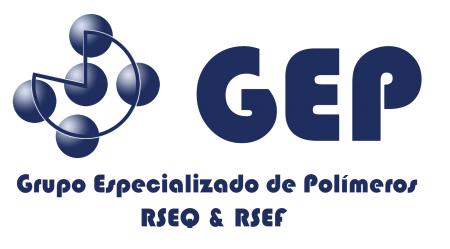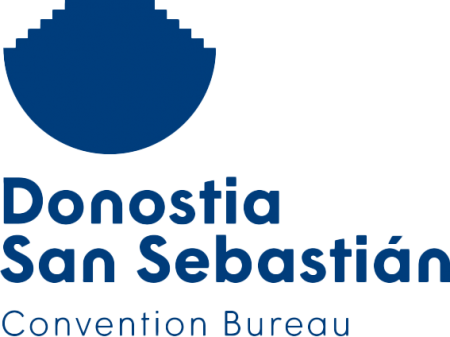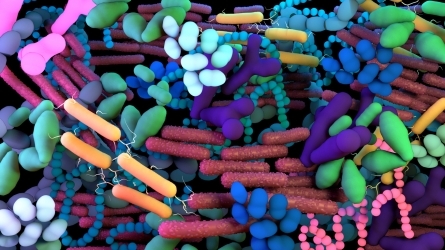
1st Edition Conference Series on Additive Manufacturing of Soft Materials
Join us in this five days conference with international speakers adressing the latest progresses on 3D Additive Manufacturing and its main impacts
Azalpena
Registration is open!
Hurry up! San Sebastián (Spain) is hosting the inaugural edition of the Conference Series on Additive Manufacturing of Soft Materials, between October 6th and October 10th, 2025.
This conference will assemble diverse communities of researchers from both academia and industry. It plans to cover a broad scope of angles from new printing technologies and the integration of digital design, to multiscale simulations, artificial intelligence and machine learning, multimodality manufacturing methods, material synthesis, multi-material printing, composite manufacturing, and performance engineering materials. AM invites a diverse cadre of researchers, from sustainability scientists and manufacturing engineers to entrepreneurs, as well as drawing on a wide range of materials expertise—from thermosets, vitrimers, and thermoplastics to hydrogels, organogels, and composites— for various AM technologies.
While (AM) is advancing rapidly, the next generation of technologies geared toward soft materials demand the integration of different modalities including rheology, photopolymerization, material science, sustainability and beyond. This will advance the field of AM technologies to fully exploit their potential in fields such as aerospace, transportation, medicine, membrane technology or energy generation and storage. As AM technologies are set to play a crucial role in the advancement of modern manufacturing, it is also increasingly pertinent to consider environmental impacts during the development of smart sustainable materials of the future.
The conference is five days long and will be held in beautiful San Sebastian, Spain, from the 6th to the 10th of October 2025. In addition to premier talks and oral contributions, the conference has designated time for poster sessions from individuals of all career stages, and a one-day Symposium for Young Researchers (6th of October 2025) to facilitate the collaboration between a new generation of scientists working in AM technologies.
Plenary speakers include Emily Davidson / Princeton University, Sandra Van Vlierberghe / Ghent University, David Mecerreyes / University of the Basque Country, Tao Xie / Zhejiang University, Timothy Long / Arizona University.
Scientific committee includes Haritz Sardon / University of the Basque Country, Timothy Long / Arizona University, Eva Blasco / Heidelberg University.
The list of keynote and invited speakers is already available on our website.
Places are limited!
Helburuak
Focus on the aspects of additive manufacturing/3D printing which are operating a paradigm shift in production: reduce centralized inventory and production; producing parts with specific properties and personalized functionalities; minimizing waste generation and enabling multi-material combinations.
Build a discussion on the environmental impacts of new technologies during the development of smart sustainable materials of the future.
Assemble diverse communities of researchers from both academia and industry and create a wider dialogue.
Involve a diverse cadre of researchers in terms of fields (sustainability scientists, manufacturing engineers, entrepreneurs) and career stage.
Involve a young audience and speakers for the first day symposium, dedicated only to young researchers to facilitate the collaboration with a new generation of scientists working in AM technologies.
Provide a safe environment for sharing research and ideas through premier talks, poster sessions, social activities and common meals.
Jarduera nori zuzenduta
- Unibertsitateko ikaslea
- Irakasleak
- Profesionalak
- Industrial companies
Zuzendariak

Haritz Sardon Muguruza
UPV/EHU
Haritz Sardon Euskal Herriko Unibertsitateko irakasle elkartua da 2022tik. Euskal Herriko Unibertsitatean egin zituen ikasketak, merituz Hedrick dotorearen taldean sartu aurretik, IBM --Almaden Research Center postdoct gisa 2012an, Han bi urte egin ondotik, Euskal Herrira itzuli zen, Espainiako Ministerioaren beka batekin, POLYMATera batu zen, taldeko buru izanik. Haritz Sardonek 135 argitalpen baino gehiagotan parte hartu du, horietatik 70 baino gehiagotan egile gisa. Bere lanaren eragina neurtzeko, 1.300 aipamen egin dira 2021ean. Hainbat sari jaso ditu, tartean, Espainiako Errege Elkarteak ematen duen ikertzaile gazteen bikaintasunaren Kimikako Saria (2021), American Chemical Societyren Makromolekulen alorreko gazte ikertzaileen saria (2021), edota Grupo Español de Polímerosek emandako Polimeroen ikertzaile gazteen bikaintasun saria (2020). Bere ikerketaren helburu nagusia da polimerizazio-prozesu jasangarriak erabiliz material polimeriko funtzional berriak prestatzea. Zehazki, haren ikerketek polimerizazio-prozesu berdeak erabiltzea eskatzen du, birziklatutako plastikotik eratorritako monomeroak kasu, energia berriztagarrien erreaktiboak edota arrisku gutxiagoko organokatalizatzaileen iturrien erabilera.
Hizlariak

Eva Blasco
Eva Blasco completed her doctorate at the University of Zaragoza (Spain). Then, with the an Alexander von Humboldt Postdoctoral Research Fellowship (2014), she carried out her research at the Karlsruhe Institute of Technology (KIT) in Germany. During this time, she spent a research stay in Brisbane (Australia) and subsequently worked as a group leader at KIT. In 2020, she was appointed Junior Professor at Heidelberg University and in 2023 she was appointed W3 Professor at the newly founded Institute for Molecular Systems Engineering and Advanced Materials (IMSEAM). She has published more than 100 publications and has been awarded several prizes. Furthermore, Prof. Eva Blasco is project leader (PI) and since 2023 co-spokesperson in the Cluster of Excellence 3D Matter Made to Order (3DMM2O). Her research interests include the development of new functional and sustainable polymer materials for 3D and 4D printing, especially on the micro- and nanoscale.

Emily Davidson
Emily Davidson is an Assistant Professor of Chemical and Biological Engineering at Princeton University. Her group’s research focuses on the directed assembly via 3D printing of nanostructured polymers, the assembly of liquid crystalline materials, and the development and depolymerization of sustainable polymers. Emily received her undergraduate degree in chemical engineering from MIT in 2010. From 2010-2012, she taught high school chemistry and physics through the Teach for America program. She then performed her graduate research at UC Berkeley (Ph.D. 2016) and UC Santa Barbara with Professor Rachel Segalman, followed by postdoctoral research (2017-2020) at Harvard University with Professor Jennifer Lewis. Emily has received several awards including the Scientista ‘Young Professional’ Award (2019), a DOE Early Career award (2022), and the Princeton School of Engineering Alfred Rheinstein Faculty Award (2023).

Timothy Long
Since 2020, Prof. Long has an interdisciplinary faculty position across the School of Molecular Sciences (SMS) and the School for Engineering Matter, Transport, and Energy (SEMTE) at Arizona State University (ASU) where he launched and now leads the Biodesign Center for Sustainable Macromolecular Materials and Manufacturing (BCSM3). In addition to over 440 peer-reviewed publications, his research awards include the 2023 3M Excellence in Adhesion Award, 2022 Paul J Flory Award, 2020 Virginia Outstanding Faculty Award and many others. His most recent research efforts address the need for tailored advanced macromolecules for advanced manufacturing (3D printing), including vat photopolymerization, direct ink write, binder jetting, powder bed fusion, and melt extrusion. His research ranges from controlled polymerization processes for block copolymers to high performance engineering polymers for emerging technology with a lens of earth sustainability.

David Mecerreyes Molero
POLYMAT
David Mecerreyes is an Ikerbasque Research Professor and Scientific Director at POLYMAT, University of the Basque Country in Spain. His actual research interests include the design of new polymers for applications in emerging technologies in energy, environment and bioelectronics. He has published over 400 peer-reviewed articles. His research interests include the design and additive manufacturing of ionic and electronic conducting polymers, redox polymers and ionic soft materials such as eutectogels. He serves as Associate Editor of the Journal ACS Applied Polymer Materials.

Haritz Sardon Muguruza
UPV/EHU
Haritz Sardon Euskal Herriko Unibertsitateko irakasle elkartua da 2022tik. Euskal Herriko Unibertsitatean egin zituen ikasketak, merituz Hedrick dotorearen taldean sartu aurretik, IBM --Almaden Research Center postdoct gisa 2012an, Han bi urte egin ondotik, Euskal Herrira itzuli zen, Espainiako Ministerioaren beka batekin, POLYMATera batu zen, taldeko buru izanik. Haritz Sardonek 135 argitalpen baino gehiagotan parte hartu du, horietatik 70 baino gehiagotan egile gisa. Bere lanaren eragina neurtzeko, 1.300 aipamen egin dira 2021ean. Hainbat sari jaso ditu, tartean, Espainiako Errege Elkarteak ematen duen ikertzaile gazteen bikaintasunaren Kimikako Saria (2021), American Chemical Societyren Makromolekulen alorreko gazte ikertzaileen saria (2021), edota Grupo Español de Polímerosek emandako Polimeroen ikertzaile gazteen bikaintasun saria (2020). Bere ikerketaren helburu nagusia da polimerizazio-prozesu jasangarriak erabiliz material polimeriko funtzional berriak prestatzea. Zehazki, haren ikerketek polimerizazio-prozesu berdeak erabiltzea eskatzen du, birziklatutako plastikotik eratorritako monomeroak kasu, energia berriztagarrien erreaktiboak edota arrisku gutxiagoko organokatalizatzaileen iturrien erabilera.

Sandra Van Vlierberghe
Prof. Dr. Sandra Van Vlierberghe is a leading researcher in the Polymer Chemistry & Biomaterials Group at Ghent University, Belgium. Her work centers around the development of photo-crosslinkable (bio)polymers and their processing through advanced (light-based) 3D printing techniques like DLP, VAM, and deposition-based methods. With over 290 publications and a Web of Science h-index of 51, she has supervised 40 PhD students (20 completed) and edited three books. She holds key roles in professional societies, including treasurer of the Belgian Polymer Group and council member of TERMIS-EU and ESB. Sandra is also president of the TERMIS-EU Communication and Outreach Committee and a founding board member of Ghent Advanced Therapies and Tissue Engineering. She received the prestigious Jean Leray Award from the European Society for Biomaterials in 2017.

Martin Wegener
After completing his Diplom and PhD in physics at Johann Wolfgang Goethe-Universität Frankfurt (Germany) in 1986 and 1987, respectively, Martin Wegener spent two years as a postdoc at AT&T Bell Laboratories in Holmdel (U.S.A.). From 1990-1995 he was professor at Universität Dortmund (Germany), since 1995 he is professor at Institute of Applied Physics of Karlsruhe Institute of Technology (KIT). Since 2001 he has a joint appointment as department head at Institute of Nanotechnology (INT) of KIT, from 2016-2022 he was one of three directors at INT. From 2001-2014 he was the coordinator of the DFG-Center for Functional Nanostructures (CFN) at KIT. Since 2018 he is spokesperson of the Cluster of Excellence 3D Matter Made to Order. His research interests comprise ultrafast optics, (extreme) nonlinear optics, optical laser lithography, photonic crystals, optical, mechanical, electronic, and thermodynamic metamaterials, as well as transformation physics.
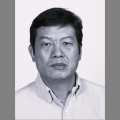
Tao Xie
Tao Xie is Qiushi chair professor at the College of Chemical & Biological Engineering, Zhejiang University. He obtained Ph. D from University of Massachusetts at Amherst in 2001. He had since worked at the General Motors Global Research Lab and HRL Laboratories before returning to China in 2013. He is the inventor of over 80 patent and a recipient of Omnova Solution award (2001), R&D 100 award (2013), and Wang Baoren Award (2019, Chinese Chemical Society). He is a fellow of ACS PMSE division and an Associate Editor for ACS Applied Materials & Interfaces.
Matrikula prezioak
| Matrikula | 2025-08-31 arte | 2025-09-30 arte |
|---|---|---|
| 575,00 EUR | 700,00 EUR | |
| 375,00 EUR | 500,00 EUR |
Kokalekua
Urriak 6 Carlos Santamaría Zentroan / Urriak 7tik 10era Miramar Jauregian
Carlos Santamaría Zentroa, Elhuyar plaza 2, 20018 Donostia / Miramar Jauregia, Mirakontxa pasealekua 48, 20007 Donostia
Gipuzkoa
Urriak 6 Carlos Santamaría Zentroan / Urriak 7tik 10era Miramar Jauregian
Carlos Santamaría Zentroa, Elhuyar plaza 2, 20018 Donostia / Miramar Jauregia, Mirakontxa pasealekua 48, 20007 Donostia
Gipuzkoa
Sustainable development goals
2030 Agenda da nazioarteko garapenerako agenda berria. Nazio Batuen Erakundeak onartu zuen 2015eko irailean eta giza garapen jasangarriaren aldeko tresna eraginkorra izan nahi du planeta osoan. Haren zutabe nagusiak dira pobrezia errotik desagerraraztea, zaurgarritasunak eta desberdintasunak urritzea, eta jasangarritasuna bultzatzea. Aukera paregabea eskaintzen du mundua 2030. urtea baino lehen aldatzeko eta pertsona guztien giza eskubideak bermatzeko.
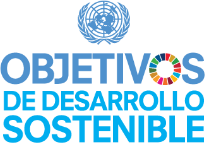
9 - Industria, berrikuntza eta azpiegitura
Azpiegitura erresilienteak eraikitzea, industrializazio inklusiboa eta jasangarria sustatzea, eta berrikuntza bultzatzea. Gai gakoak: azpiegitura fidagarriak, jasangarriak, erresilienteak eta kalitatezkoak, industrializazio inklusibo eta jasangarria, modernizazioa, teknologia eta prozesu industrial garbiak eta ingurumenaren aldetik arrazionalak, ikerketa zientifikoa eta gaitasun teknologikoaren hobekuntza, IKTetarako sarbide unibertsala.
Informazio gehiago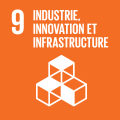
12 - Ekoizpen eta kontsumo arduratsuak
Kontsumo eta ekoizpen eredu jasangarriak bermatzea. Gai gakoak: baliabide naturalen kudeaketa jasangarria eta erabilera eraginkorra, atmosferara, uretara eta lurzorura askatutako partikula kimikoak murriztea, hondakinak gutxitzea, birziklatzea, berrerabiltzea eta murriztea, jardunbide jasangarriak, erosketa publiko jasangarria, bizimodu jasangarriak, erregai fosilei ematen zaizkien laguntza ez-eraginkorrak arrazionalizatzea.
Informazio gehiago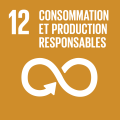
17 - Helburuak lortzeko aliantza
Garapen Jasangarrirako Munduko Aliantza ezartzeko eta biziberritzeko bitartekoak indartzea. Gai gakoak: baliabideen mobilizazioa, BPGren % 0,7 garapenerako laguntza ofizialerako, kanpo zorra, finantzak, teknologia eta berrikuntza arloko lankidetza, ekologikoki arrazionalak diren teknologiak, gaitasunak sortzea, alde anitzeko merkataritza sistema unibertsala, arau eta erakunde koherentzia, datuen eskuragarritasuna, zaintza, adierazleak eta kontu ematea.
Informazio gehiago